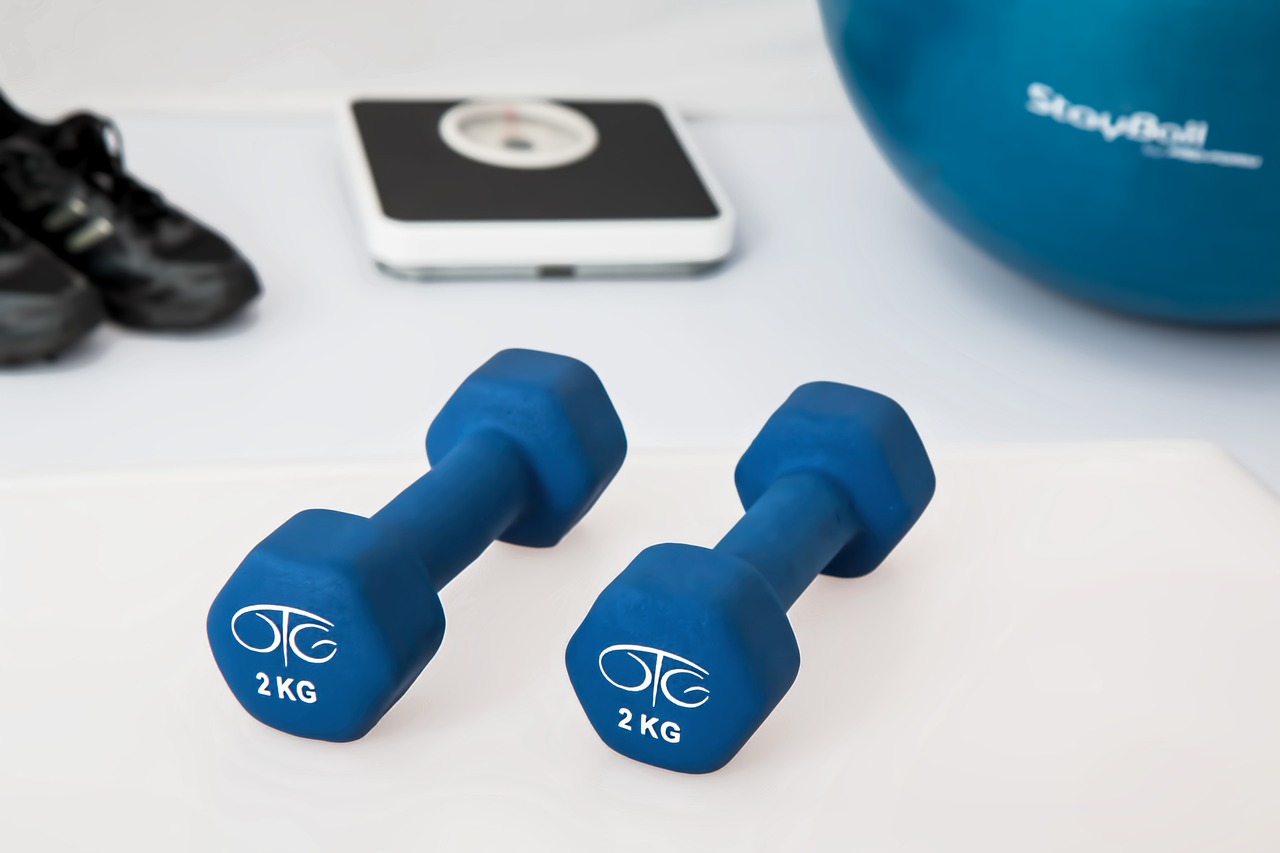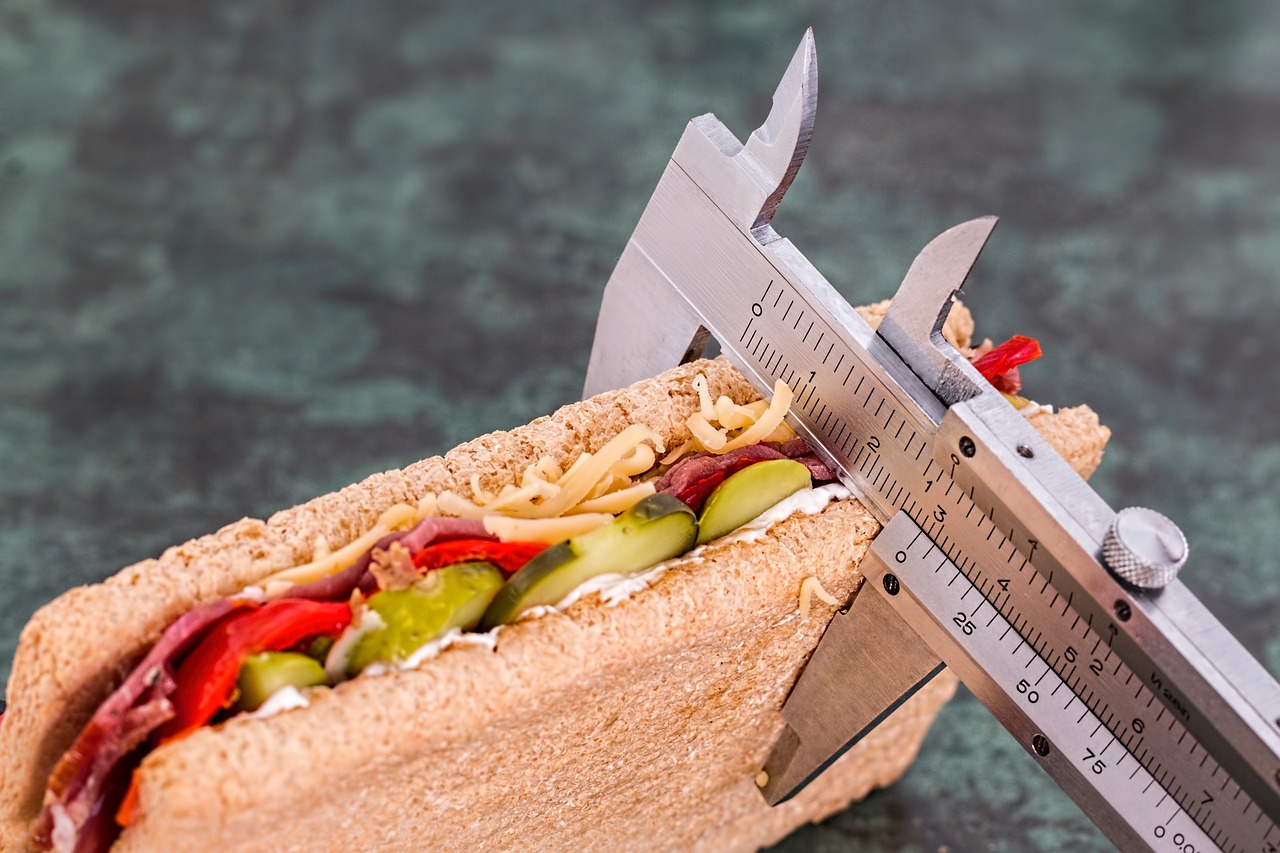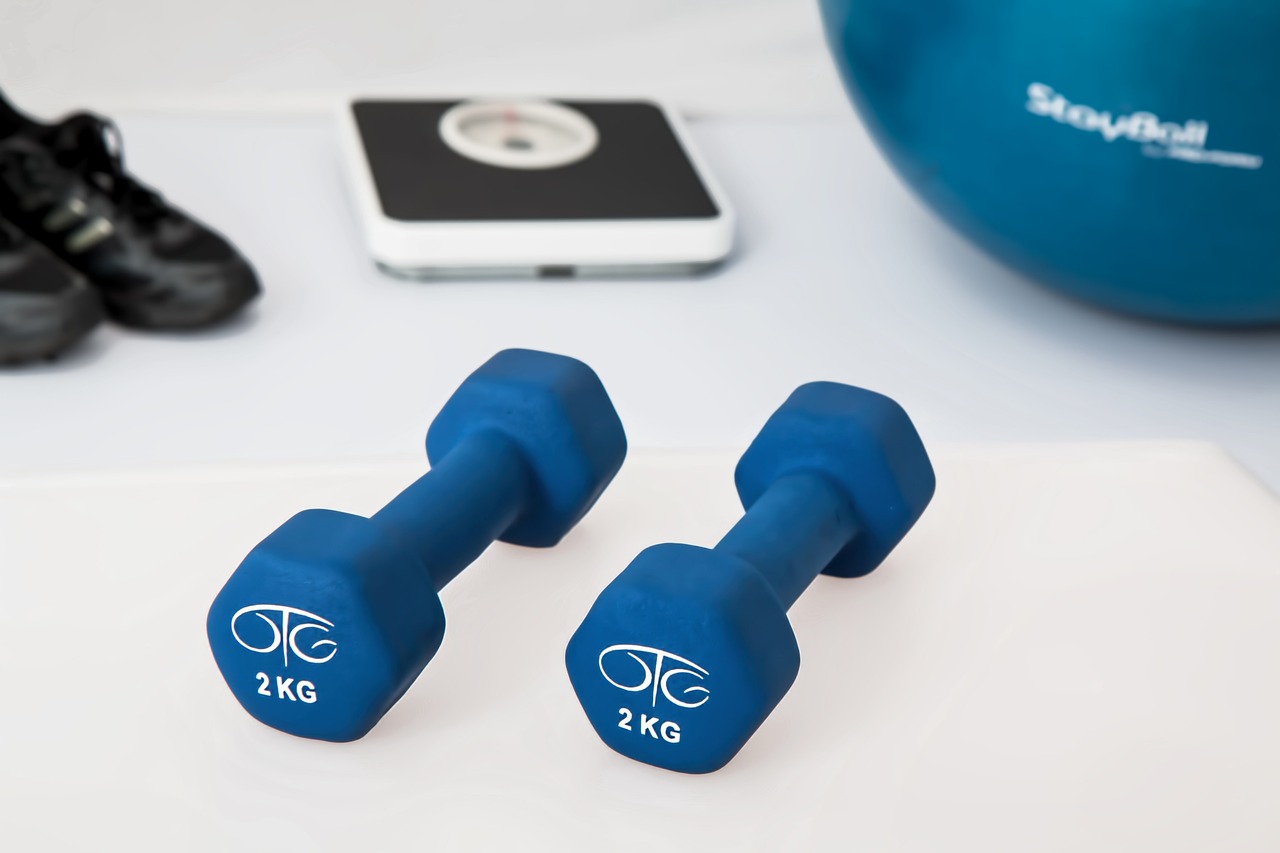Are you wondering if exercise has any impact on your weight loss journey? It’s a question that many people ask when embarking on their fitness goals. In this article, we will explore the relationship between exercise and weight loss, and shed some light on how incorporating physical activity into your routine can aid in shedding those unwanted pounds. Get ready to discover the incredible benefits of exercise and how it can contribute to achieving your desired weight.
The Importance of Exercise for Weight Loss
When it comes to weight loss, exercise plays a crucial role in achieving your goals. While adopting a healthy diet is necessary for shedding those extra pounds, exercise can greatly enhance your efforts. Exercise not only helps you burn calories but also aids in building muscle, increasing metabolism, regulating appetite, and supporting a healthy weight loss journey. By incorporating various types of exercises into your routine, finding the right frequency and duration, and making other lifestyle changes, you can maximize your weight loss potential and maintain your progress in the long run.
Exercise and Calorie Expenditure
One of the primary ways exercise contributes to weight loss is by burning calories. Engaging in physical activity causes your body to expend energy, resulting in a calorie deficit. The more intense the exercise, the more calories you will burn. Whether you choose to go for a brisk walk, jog, cycle, or participate in a workout class, each session contributes to the overall calorie expenditure, bringing you closer to your weight loss goals.
Building Muscle and Increasing Metabolism
In addition to burning calories, exercise also helps in building muscle mass. While many individuals may associate building muscle with a bulkier physique, incorporating strength training into your exercise routine can actually lead to a leaner and more toned appearance. Muscle tissue has a higher metabolic rate compared to fat tissue, which means that the more muscle you have, the more calories you burn at rest. By increasing your muscle mass, you can boost your metabolism and improve your body’s ability to burn calories throughout the day, even when you’re not actively exercising.
Regulating Appetite and Food Intake
Exercise also plays a significant role in regulating appetite and controlling food intake. Physical activity has been shown to reduce hunger hormones and increase feelings of fullness. This can prevent overeating and help you make healthier choices when it comes to food. Additionally, exercise can serve as a distraction from food cravings and emotional eating, allowing you to develop a healthier relationship with food and make more mindful choices. By incorporating exercise into your weight loss journey, you can better manage your appetite and support a balanced diet.
Different Types of Exercise and Their Impact on Weight Loss
To maximize the benefits of exercise for weight loss, it is essential to incorporate a variety of exercises into your routine. Each type of exercise has its own impact on your body and can contribute to weight loss in different ways. Here are three common types of exercises and their effects on your weight loss journey.
Cardiovascular Exercise
Cardiovascular exercise, also known as aerobic exercise, targets your cardiovascular system and helps improve your endurance. This type of exercise includes activities such as jogging, swimming, cycling, and dance aerobics. Cardio exercises are effective for weight loss as they elevate your heart rate and increase calorie burn during and after the workout. By engaging in cardio exercises regularly, you can improve your cardiovascular health, burn excess calories, and aid in weight loss.
Strength Training
Strength training involves using resistance, such as weights or resistance bands, to build muscle strength and endurance. This type of exercise not only helps in toning and sculpting your muscles but also contributes to weight loss efforts. As mentioned earlier, building muscle mass increases your metabolism and allows your body to burn more calories. Incorporating strength training into your exercise routine can lead to long-term weight loss by boosting your metabolism and promoting fat loss.
High-Intensity Interval Training (HIIT)
High-Intensity Interval Training, or HIIT, is a type of exercise that alternates between short bursts of intense activity and periods of rest or lower intensity. HIIT workouts are known for their efficiency in burning calories and fat. These workouts typically involve a combination of cardio and strength exercises, performed at maximum effort for a short duration. HIIT sessions are time-effective and can continue to burn calories even after the workout is complete. Including HIIT in your exercise routine can help accelerate weight loss and improve overall fitness levels.

Exercise Frequency and Duration
While incorporating different types of exercises is important for weight loss, it is equally crucial to determine the appropriate frequency and duration of your workouts. Finding the right balance will ensure that you’re challenging your body enough to burn calories and build muscle while avoiding overexertion or burnout.
Frequency of Exercise
The frequency of exercise refers to how often you engage in physical activity. For most individuals, aiming for at least 150 minutes of moderate-intensity aerobic exercise or 75 minutes of vigorous-intensity aerobic exercise per week is recommended. This can be spread out over several sessions throughout the week. Additionally, incorporating strength training exercises two or more days a week is beneficial for building muscle and increasing metabolism. It is important to find a workout schedule that fits into your lifestyle and allows for adequate rest and recovery.
Duration of Exercise
The duration of exercise refers to the length of time you spend on physical activity during each session. The American Heart Association recommends aiming for at least 30 minutes of moderate-intensity aerobic exercise five days a week or 25 minutes of vigorous-intensity aerobic exercise three days a week. However, if your goal is weight loss, you may need to increase the duration of your workouts to achieve a greater calorie expenditure. Gradually working your way up to longer exercise sessions can help you build endurance and progress towards your weight loss goals.
Exercise and Weight Loss Plateaus
Weight loss plateaus can be disheartening and frustrating, especially when you’ve been consistently exercising and following a healthy diet. However, it’s important to understand that weight loss plateaus are a natural part of the process and often occur due to various factors.
Causes of Weight Loss Plateaus
One common cause of weight loss plateaus is metabolic adaptation. As you lose weight, your body becomes more efficient at utilizing energy, which can result in a decrease in calorie expenditure. This means that the same exercise routine and calorie intake that initially led to weight loss may no longer produce the same results. Additionally, your body may reach a point where it needs to readjust before further weight loss can occur. Hormonal fluctuations, reduced muscle mass, and water retention can also contribute to weight loss plateaus.
Exercise Strategies to Overcome Plateaus
To overcome weight loss plateaus, it’s important to implement strategies that challenge your body and encourage further progress. One effective strategy is to modify your exercise routine by increasing the intensity, duration, or frequency of your workouts. This can help stimulate your body and increase calorie burn. Additionally, incorporating new types of exercises or trying different workout formats can prevent boredom and provide a fresh stimulus for your body. It’s also crucial to reassess your diet and make any necessary adjustments, such as decreasing portion sizes or modifying macronutrient ratios. Lastly, remaining patient and consistent with your efforts is key to breaking through weight loss plateaus.

Finding the Right Exercise Routine for Weight Loss
Finding the right exercise routine for weight loss is a personal journey that requires consideration of both personal preferences and lifestyle factors. It’s important to choose exercises that you enjoy and are more likely to stick with in the long run. Here are some tips to help you find the right exercise routine for your weight loss journey.
Seeking Professional Advice
If you’re new to exercise or unsure where to start, seeking professional advice from a fitness trainer or exercise physiologist can be beneficial. They can assess your current fitness level, help you set realistic goals, and create a personalized exercise plan tailored to your needs and preferences. A professional can also provide guidance on proper form and technique to prevent injuries and maximize the benefits of each exercise.
Considering Personal Preferences and Lifestyle
When selecting exercises, it’s essential to consider your personal preferences and lifestyle factors. If you enjoy being outdoors and prefer activities like hiking or cycling, incorporating these into your routine can make exercise more enjoyable. If you have a busy schedule, choosing workouts that are time-efficient, such as HIIT or circuit training, can help you stay consistent. Additionally, finding exercise options that align with your budget and accessibility, such as home workouts or joining a local gym, can make it easier to incorporate exercise into your daily routine.
Exercise Supporting a Healthy Diet for Weight Loss
Exercise and diet go hand in hand when it comes to weight loss. While exercise helps burn calories and improve overall fitness, a healthy diet provides the necessary fuel for your workouts and supports weight loss efforts. Here are some ways exercise can support a healthy diet for weight loss.
Balancing Calories In and Out
To lose weight, you need to create a calorie deficit, which means burning more calories than you consume. Exercise contributes to this equation by increasing calorie expenditure. By combining regular exercise with a balanced and nutritious diet, you can strike a balance between the calories you consume and the calories you burn, thereby supporting weight loss goals.
Choosing Nutrient-Dense Foods
Exercise can also influence your food choices and promote a healthier diet. When you engage in physical activity, you become more aware of how certain foods make you feel. This can result in a preference for nutrient-dense foods that provide energy, support recovery, and nourish your body. Incorporating a variety of fruits, vegetables, lean proteins, whole grains, and healthy fats into your diet can provide the necessary nutrients to fuel your workouts and enhance weight loss efforts.
Hydration and Exercise
Staying hydrated is essential for optimal exercise performance and supporting weight loss. Water helps transport nutrients, regulate body temperature, and lubricate joints during physical activity. It also aids in digestion and can help prevent overeating by reducing feelings of hunger. It is important to drink water before, during, and after exercise to stay properly hydrated and ensure that your body functions optimally.

Combining Exercise with Other Lifestyle Changes for Weight Loss
Weight loss is not just about exercise and diet; it involves adopting a holistic approach to your lifestyle. Incorporating other lifestyle changes alongside exercise can further support your weight loss journey and improve overall well-being.
Sleep and Recovery
Adequate sleep and recovery are crucial for weight loss and overall health. Poor sleep quality and inadequate rest can disrupt hormone levels, increase cravings, and hinder exercise performance. Aim for 7-9 hours of quality sleep each night and incorporate rest days into your exercise routine to allow your body to recover and repair.
Stress Management
Stress can have a significant impact on weight management. High levels of stress can lead to emotional eating, increased cravings, and hinder weight loss progress. Engaging in stress-reducing activities such as yoga, meditation, or engaging in hobbies can help manage stress levels and support your weight loss journey.
Creating a Supportive Environment
Having a supportive environment plays a crucial role in maintaining motivation and adherence to your exercise and weight loss goals. Surround yourself with like-minded individuals who share similar goals or consider joining a fitness group or class. Having a workout buddy or accountability partner can provide encouragement and help you stay on track. Additionally, creating a supportive home environment by stocking your kitchen with healthy foods and removing temptations can make it easier to make nutritious choices.
Maintaining Weight Loss through Exercise
Weight loss is not just about reaching a specific number on the scale; it’s about maintaining your progress in the long term. Incorporating exercise into your lifestyle on a regular basis is key to maintaining weight loss and preventing weight regain.
Long-Term Commitment to Regular Exercise
To maintain weight loss, it is crucial to view exercise as a long-term commitment rather than a short-term solution. Consistent engagement in physical activity helps in preserving muscle mass, maintaining a healthy metabolism, and preventing weight regain. Make exercise a habit by scheduling it into your weekly routine, setting realistic goals, and finding enjoyment in the activities you choose.
Adapting Exercise Routine as Weight Changes
As your weight changes, it’s essential to reassess your exercise routine and make necessary modifications. Adjusting the intensity, duration, or type of exercise can ensure that you continue to challenge your body and stimulate further progress. Consult with a fitness professional if needed to create a new exercise plan that aligns with your current weight and fitness level.

Potential Risks and Considerations for Exercise and Weight Loss
While exercise is generally safe and beneficial for weight loss, it’s important to take certain precautions and consider any individual circumstances or pre-existing health conditions.
Pre-existing Health Conditions
If you have any pre-existing health conditions or concerns, it is important to consult with your healthcare provider before starting an exercise program. Certain conditions, such as cardiovascular disease, diabetes, or musculoskeletal issues, may require specific modifications or precautions when it comes to exercise. Your healthcare provider can provide guidance on what types of exercise are safe and appropriate for your specific situation.
Avoiding Overtraining and Injuries
Overtraining and injuries can hinder your weight loss progress and overall well-being. It’s important to listen to your body and avoid pushing yourself too hard. Gradually increasing the intensity and duration of your workouts, incorporating rest days, and practicing proper form and technique can help prevent injuries. If you experience persistent pain or discomfort during exercise, it is important to seek medical attention and modify your routine accordingly.
Conclusion
Exercise is a crucial component of any weight loss journey. By incorporating a variety of exercises, finding the right frequency and duration, and making other lifestyle changes, you can maximize your weight loss potential and maintain your progress in the long run. Remember to consider personal preferences, seek professional advice when needed, and support your exercise routine with a healthy diet and other lifestyle modifications. With commitment, consistency, and a balanced approach, exercise can play a significant role in helping you achieve and maintain your weight loss goals.

